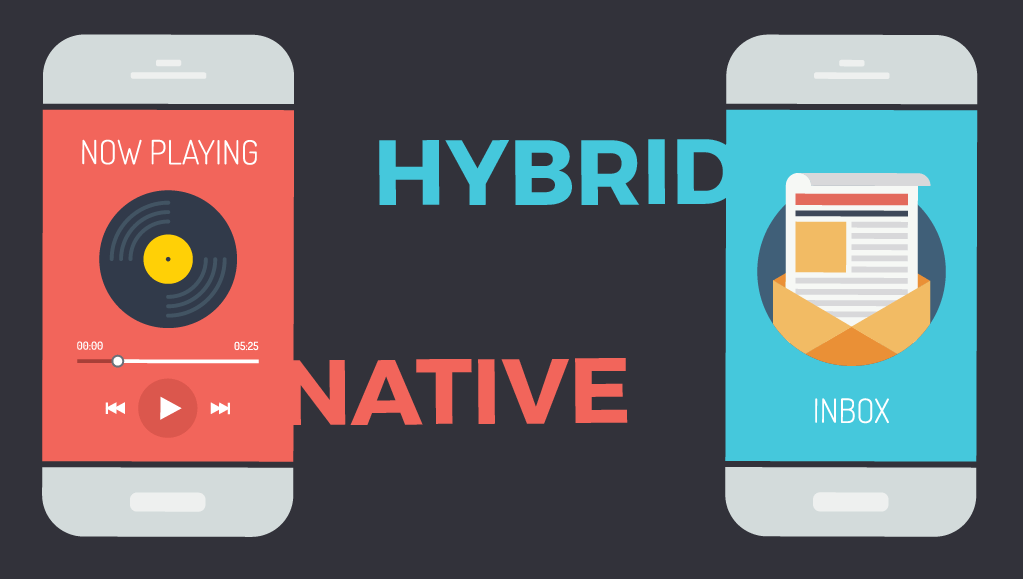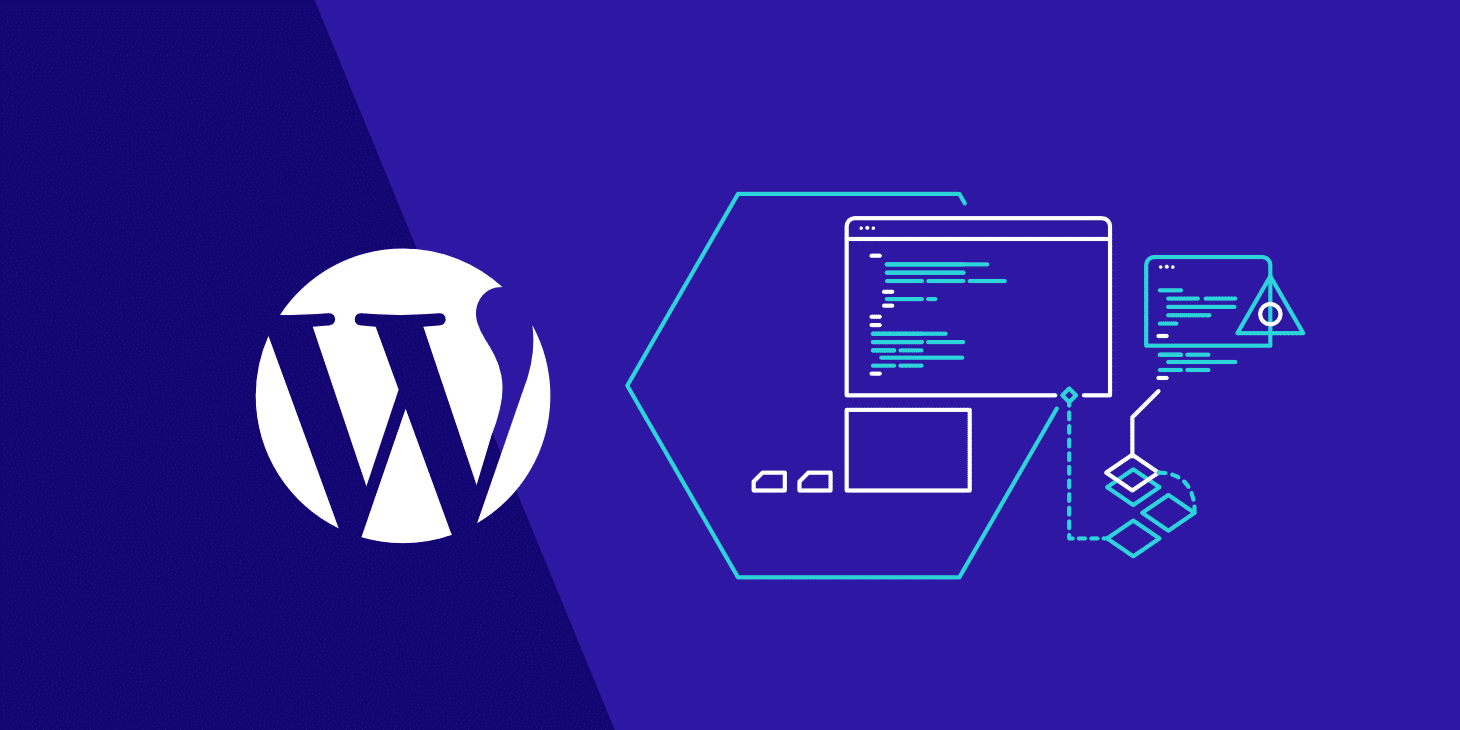
Apps are more than just technology. Apps have become a part of life and people are spending the majority of their days on apps now. Not to confuse these apps with game apps since non-gaming apps have seen a sudden rise in the market. Next year, 2020, the non-gaming apps are said to reach the global download rate of 284 billion.
Now tell us, can your business afford to lose such a huge market? Absolutely not! Going mobile has so many advantages and opens up multiple doors of opportunities for businesses. Apps are great for creating awareness and providing more value to your customers. This is why most businesses are opting for a mobile app solution.
Those who are going for app development for business must be knowing that there are many choices and decisions to make. During the entire app development process, there are a lot of choices that the app owner and the app developer make in order to get the best possible outcome.
One of these decisions is a choice between native and hybrid apps. The debate of native vs hybrid app has been going on for a while and honestly, there is no black and white answer to it.
So, let us start by understanding what is native app and hybrid app in simple terms.
Defining Native and Hybrid Apps

Native apps are particularly built for one platform. These apps are based on programming languages that support one platform at a time. The languages are Java or Kotlin for Android app development and Swift or Objective-C for iOS app development. These apps cannot be run on other platforms since they are developed for a specific platform. For instance, an app built for iOS platform cannot run on the Android devices and vice versa. However, this does have a benefit. Since the apps are built for one specific platform i.e. iOS or Android or Windows, the apps can use the full functionality of the devices. This means a smooth running app with lesser errors.
What is hybrid app? A hybrid mobile app is based on the web view which runs on a web application in a native browser. These are viewed in UIWebView for iOS and WebView in Android. These apps are developed using languages like CSS, HTML, JavaScript and then Cordova is used for wrapping them into native apps.
When compared, Native vs hybrid app, one is rich in performance and the other has a higher reach in the market. Despite the differences, both types of apps use languages that are considered to be the top programming languages in 2019. These apps have benefits as well as limitations which we will discuss in the upcoming segment of the blog.
Hybrid vs Native Apps Pros and Cons
Now that you are clear with what are native apps and hybrid apps, let’s see their pros and cons. Both the apps are good for different reasons but not for the same reasons. Each has its own pros and cons which will determine whether you should go for a hybrid
mobile app or a native mobile app.

Pros of Native apps
- Native apps are fast and smooth since they are developed for one platform.
- These apps have the best performance.
- In terms of user input and output, the apps run much smoother.
- Offline mode is available for most of the apps.
- Access to the full functionality of the app devices.
- The overall user experience is great as the UI is specific for the platforms.
Cons of Native apps
- The cost of native mobile app development is high.
- App development time is slow.
- You will need expert development agencies since the programming languages are complicated.
- This is not a good choice for simple apps.

Pros of Hybrid apps
- A hybrid mobile app is developed in less time.
- The cost of development is lower for Hybrid apps.
- A Hybrid application can run on multiple platforms.
- The app development for multiple platforms needs to be done only once.
- The device’s APIs can be accessed.
- The maintenance and support for these apps are easy.
Cons of Hybrid apps
- Hybrid app development is a much slower process than native app development.
- Hybrid apps cannot use the full functionality of mobile devices.
- The web apps fail to be interactive and intuitive which is why native apps are better than hybrid in providing good user experience.
- Need network at all times to run well.
- Hybrid apps depend on a third-party wrapper.
So these were the native vs hybrid apps pros and cons. We can clearly see that both have a reasonable number of pros and cons. Web apps or hybrid apps lack high performance whereas native apps require constant updates from the users’ side. For proper comparison, we shall move to the next segment which is the difference between native and hybrid mobile apps.
What is the Difference Between Native App and Hybrid App?
The native vs hybrid app comparison is done for different criteria. Some differences between mobile native vs hybrid are quite clear as they can be noticed easily. However, there are also some major differences that take place during the app development process.
The first difference is the one that we have been talking about since the beginning of this blog. The native apps are built for one platform whereas the hybrid apps can be run on multiple platforms.
This brings us to the second difference between hybrid app and native app. The programming language used in both apps is different since there is a difference in supporting the platform. Hybrid apps are developed using CSS, HTML and JavaScript whereas Native apps are built using Java for Android and Swift for iOS.
The third difference between native app and hybrid app is the developer. When going for native app development then there is a need of an expert app developer. Since the app is focused on one platform, the importance of UI/UX design in the app is very high. Customers tend to leave the app if they are not satisfied with the UI of the app. On the other hand, hybrid apps are easy to build and takes less time. They do not require an expert for the development process.
In the native vs hybrid app, performance is a major difference. Native apps are smooth and provide better user experience than hybrid apps. For a better understanding of these differences, here is a table of comparison between native vs hybrid app.
One of the differences is the app development cost. Native vs hybrid app development cost differs. The hybrid app development cost ranges from low to medium whereas the native apps range from medium to high.
All these differences help a business decide whether they can use the advantages of a native app or a hybrid app. However, we cannot ignore the fact that both the app development choices have seen some successful apps. Some of the successful Native apps are Twitter, PayPal, LinkedIn, Google Maps, Telegram, PokemonGo, etc. Instagram, Yelp, Baskin Robbin, Basecamp, etc, are examples of Hybrid apps.
If even after this long comparison you haven’t figured out a side in native app vs hybrid app, then the next segment is for you.
Native vs Hybrid App Development: When to Choose Which?

After seeing the pros and cons of native and hybrid mobile applications and the difference between native and hybrid app, we can say each has a set of benefit that the other can’t replace. The hybrid app performance when compared to a native app is poor and lacks interaction. This is a strong point for anyone thinking of owning an app.
Before deciding between native app vs hybrid app, there are some factors that must be considered:
- The speed of the app
- The UI/UX of the app
- The complexity of features in the app
- The app development budget
- The purpose of the app
Let us see point by point when to choose which option between native vs hybrid mobile app development.
Choose Native apps:
- If you want an app that works online as well as offline.
- When you want an app that is interactive and high performing.
- If you can accept some low responsiveness in your app.
- If your app needs to choose from a wide range of functionalities.
- If your app needs to access the mobile devices’ features.
Choose Hybrid apps:
- If you have an existing website and want an app for it.
- If the app constantly needs to download information from the internet.
- If you want to get an app in a short period of time at a less cost.
- If the app is simple and does not have complicated calculations or designs.
- If you are still testing your ideas in the market.
- If the app should be able to use any hardware the device offers.
To conclude with, native apps are built with strong features and technical advancements whereas hybrid apps are cost-effective and less time-consuming. If you wish to know more about native and hybrid app difference or how to build hybrid apps or native apps, contact our app development team at Anteelo.






